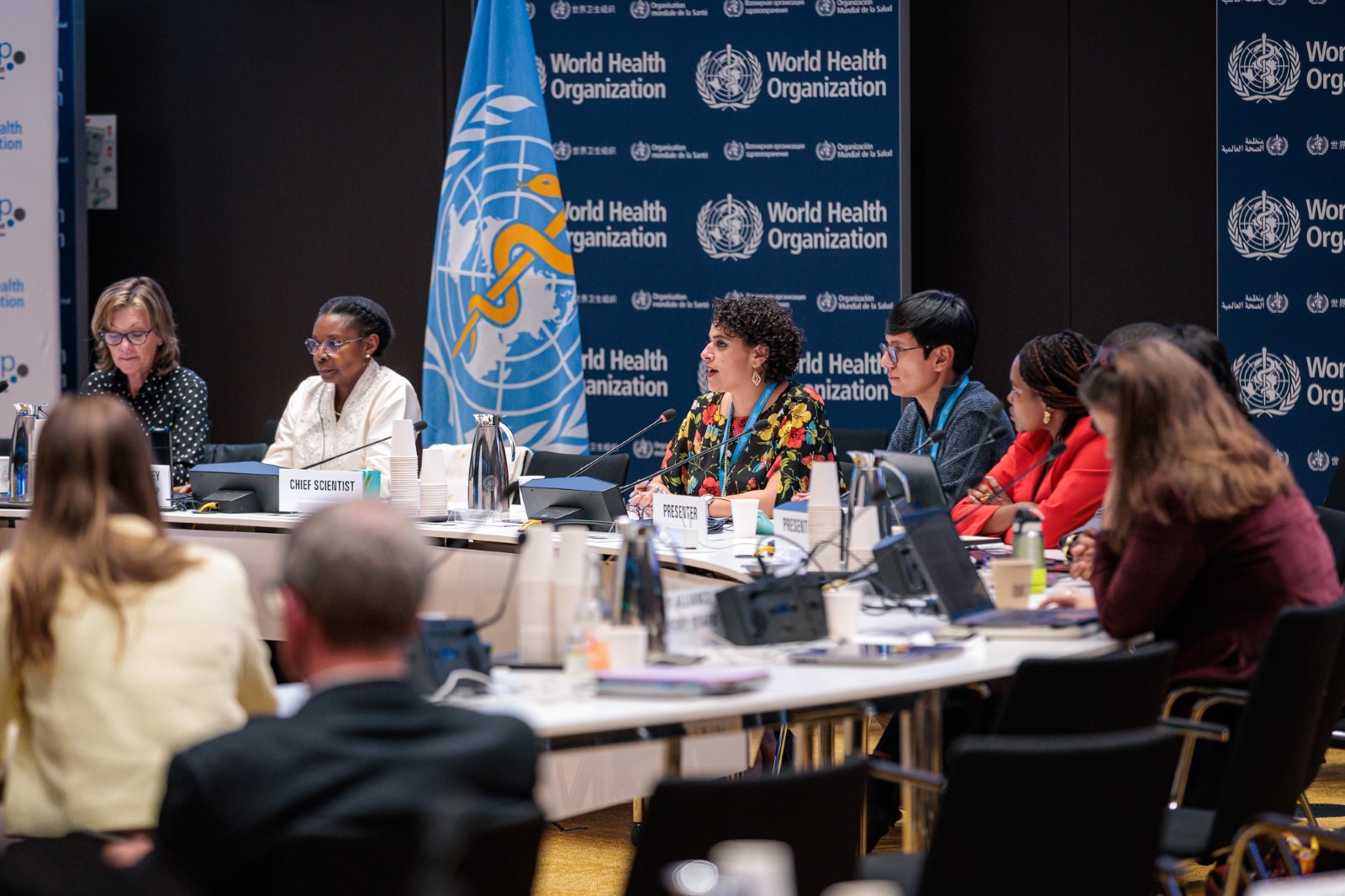“Women are not dying of diseases we can't treat. They are dying because societies have yet to make the decision that their lives are worth saving” -- late Dr. Mahmoud Fathalla, former director of WHO's Special Programme of Research, Development and Research Training in Human Reproduction (HRP Research).
The 38th Session of Human Reproduction Program (HRP)’s Policy and Coordination Committee (PCC) was opened by Director Pascale Allotey, who gave a powerful overview and progress of the various portfolios and an urgent reminder to Member States, Non-State Actors and Observers about the dire need to protect sexual and reproductive health and rights (SRHR) and gender equality amidst the hostile age of misinformation and attacks of evidence, science, and rights.
As part this year’s PCC, the PUSH Campaign was honored to be at the forefront of a powerful discussion on the role of civil society in advancing and protecting SRHR. Merette Khalil, PUSH Campaign Lead, moderated a compelling panel titled “Impacting SRHR: Civil Society Organization Perspectives”, which brought together a diverse range of grassroots leaders and advocates to underscore a message that cannot be ignored: civil society is not just a partner in health systems — it is a lifeline.

The session spotlighted the indispensable role that civil society organizations (CSOs) play in both defending and delivering SRHR, especially in fragile and underfunded settings. As the ones often closest to the lived realities and nuances of meaningful community engagement, CSO serve communities with courage, creativity, and commitment. Amid escalating political interference, funding cuts, shrinking civic space, and attacks on gender equality and bodily autonomy, community and youth led-CSOs are on the frontlines — advocating for rights, translating evidence into action, and ensuring that no one is left behind.
A Panel of Powerful Perspectives

The session was opened by a video compiling reflections of civil society organizations, part of the IBP Network, representing Nepal, Brazil, Burkina Faso, Kenya, Malawi, Peru, Germany, India, and Tanzania, a grounding reality-check of the crucial importance of supporting and funding organizations closest to the grassroots.
This was followed by a panel discussion highlighting successful examples of the collaboration between CSOs and HRP in advancing evidence-based SRHR service delivery and advocacy. Merette Khalil, ICM’s PUSH Campaign lead, set the scene by highlighting the need to listen and center women and communities, and directly responding to their needs, the impetus of the PUSH Campaign. She introduced the expert panelists Alan Jarandilla, Executive Director of the International Youth Alliance for Family Planning (IYAFP) from Bolivia, Sesilia Shirima, Executive Director of Young and Alive from Tanzania, and Alphonse Balamou, Program Manager of Afrique Arc due Ciel and Co-founder of Reseau National des Populations Cles from Guinea.
Panelists shared how their organizations have used WHO and HRP research to support advocacy, train youth advocates, challenge stigma, and improve services on the ground. They also spoke of the real challenges CSOs face: threats to safety, unpaid labor, increasing censorship, and the emotional toll of defending rights under pressure. Yet they also emphasized the critical importance of partnerships with institutions like HRP and WHO in legitimizing their work and opening doors with governments.

The Case for Meaningful Engagement
The panel served as a timely reminder that civil society is not a passive beneficiary — it is an active agent of change. But to continue this vital work, CSOs need more than applause — they need funding, political space, and genuine mutual partnerships. The session called for a more coordinated and intentional approach to engaging civil society — not only in implementing programs but in shaping research agendas, setting priorities, and holding governments accountable. It was clear that without robust support and integration of CSOs, global efforts to expand access to SRHR will fall short.
It was encouraging to have statements of support from the Governments of the UK, South Africa, Morocco and Peru who celebrated and championed the role of civil society in SRHR and called to build bridges, reinforcing that every stakeholder has a role to play in protecting SRHR — and that CSOs must be present at every table where decisions are made.
Civil Society: Essential to the PUSH Campaign
The PUSH Campaign is built on this very principle — that the advancement of sexual and reproductive health, including midwifery-led care, must be rooted in the voices and needs of women, communities, and frontline providers. Through its advocacy, PUSH mobilizes civil society networks around the world to shift power, reimagine woman-centred care, and demand systems that center women and ensure dignity and equity.
We invite you to join the PUSH Campaign. By signing the Push pledge, you are committing to a world where woman-centred care (WCC) is the standard—where every woman has the right to respectful, empowering care, and where midwives are recognised as key providers of that care.